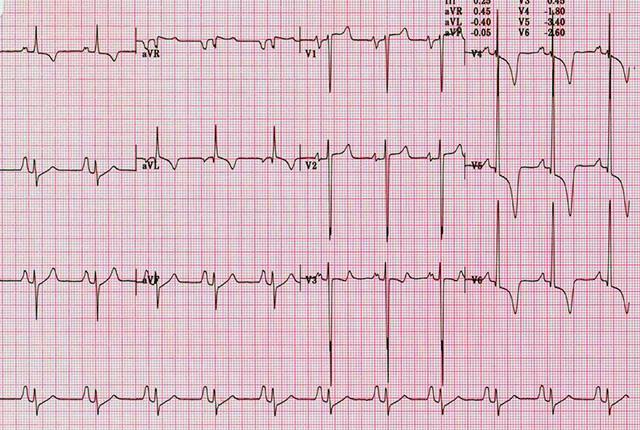ECG heightens detection of sudden cardiac death risk and is a cost-effective diagnostic, a new study shows

Credit: UW Medicine
Over the past 30 years, colleges and universities have increasingly screened athletes for health conditions that may pose undue risk to sports participation. Sudden cardiac death is the leading cause of death among college athletes, so a primary function of these screenings is to reveal unknown heart conditions.
The National Collegiate Athletic Association requires a baseline pre-participation physical exam and patient history; some schools also administer an electrocardiogram (ECG), which measures the electrical output of a person’s heartbeat. Disagreement exists, however, about ECGs’ value. While experts generally agree that an ECG can flag cardiac issues of concern, detractors say they result in too many false-positive findings, leading to unnecessary additional tests and costs.
Research published today indicates that screenings that incorporate an ECG are more effective at detecting cardiac conditions that put athletes at risk, and more efficient in terms of cost-per-diagnosis of at-risk players, than screenings involving only a physical exam and patient history.
The journal Heart Rhythm published the multi-institutional research. It was led by Dr. Kimberly Harmon, section head of sports medicine at the University of Washington School of Medicine and lead physician for the UW football team.
Harmon and colleagues found that, across 8,602 records of Pacific-12 Conference athletes, cardiovascular screenings with an ECG in addition to a patient history and physical exam were six times more likely to detect a risky heart condition than screenings that involved only a patient history and physical. In parallel, ECG use improved the cost efficiency per diagnosis by five-fold.
“This is a real-world assessment of the discoveries resulting from different screening strategies, and how much they cost,” Harmon said. “This study shows that screening with ECG is not only significantly more effective, it is only incrementally more expensive overall and costs much less per diagnosis. It can be implemented for much less than the cost of a pair of athletic shoes.”
The researchers sought to compare positive findings, disease prevalence, and the costs of two screening strategies. They collected nine years of athletes’ de-identified data from Pac-12 Conference institutions, which employ varied strategies for pre-participation physical screenings. Also analyzed were secondary tests, cardiac diagnoses, return-to-play outcomes, and complications from testing.
From 8,602 screenings, 11 athletes were identified with cardiovascular conditions:
- History and physical exam: Two athletes (of 4,955) were identified as at risk, equating with a prevalence of 0.05% (1 in 2,454). Per-athlete screening cost averaged $130; cost per diagnosis was $312,407.
- History, physical and ECG: nine athletes (of 3,647) were identified as at risk, equating with a prevalence of 0.024% (1 in 410). Per-athlete screening test cost was $152; cost per diagnosis was $61,712.
The costs of screenings and secondary testing were based on the Centers for Medicare and Medicaid Services Physician Fee Schedule.
“This is the first study to compare screenings by using real-life outcomes rather than theoretical models and variable assumptions,” said Harmon, a UW professor of family medicine and of orthopedics and sports medicine.
Not every school can incorporate ECG tests into athlete screenings, Harmon said. It’s less a question about covering a $22 test cost and more about whether physicians are readily available to interpret the ECGs.
The study included screenings of athletes across all varsity sports, though men’s basketball and football account for more than 50% of sudden cardiac deaths among college athletes, she said. Several Pac-12 schools have prioritized those sports for screening.
###
The research was supported with a grant from the ” target=”_blank”>Pac-12 Conference’s Student-Athlete Health and Well-Being Initiative.
Media Contact
Brian Donohue
[email protected]
Original Source
https:/
Related Journal Article
http://dx.




